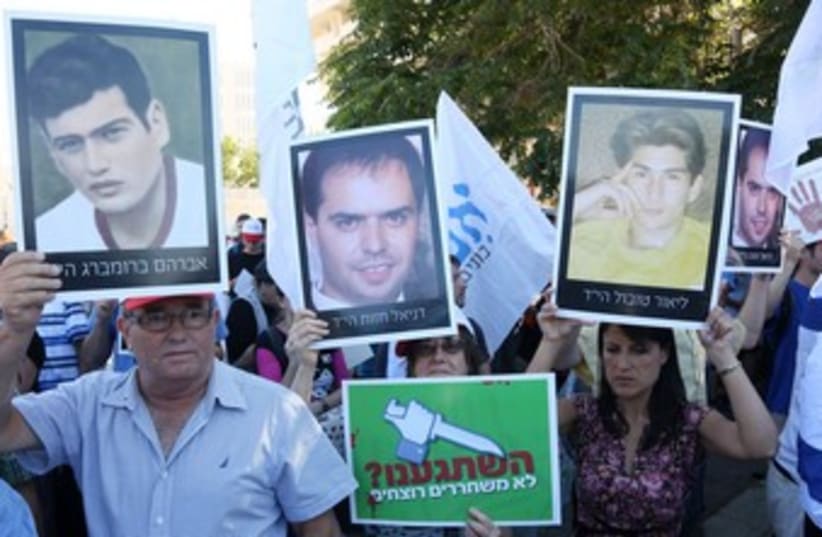For terror victims' families, Palestinian prisoner release a ‘black day’
"The state that even thinks about letting them go only advances terror," says nephew of murdered soldier; family of imprisoned murderer says “if there will be no peace, the situation will get worse.”
